Archive for year: 2023
Meet Jessy Shelton, California Greenworks Project Lead
/in Uncategorized/by Admin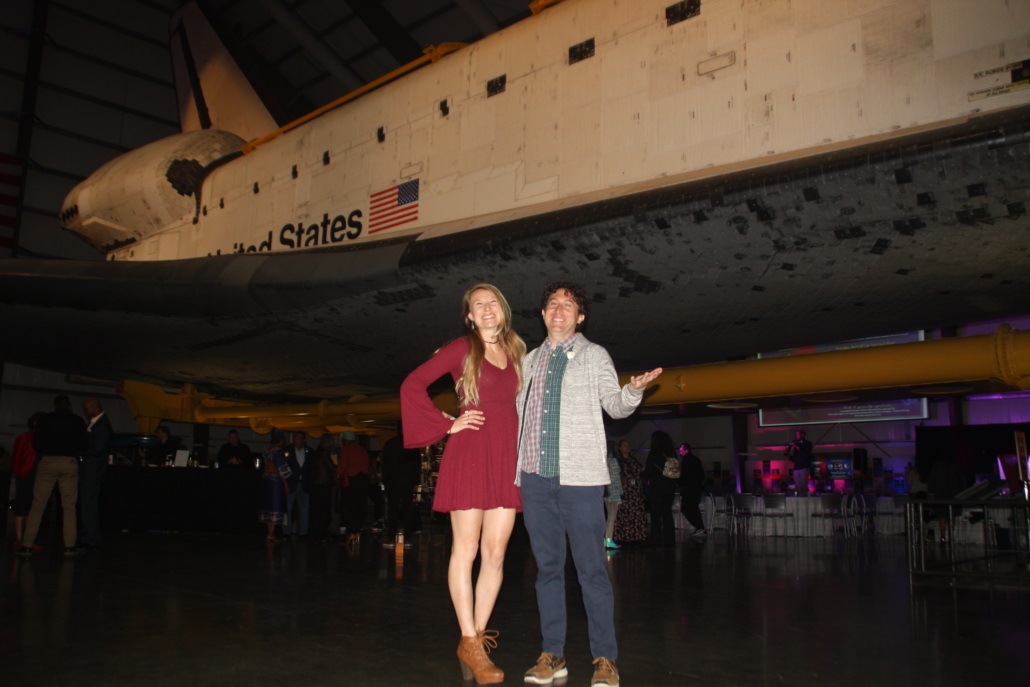
Jessy has served 10 years, both professionally and voluntarily, working with nonprofits. She holds a B.S. in Environmental Science and Resource Management with an emphasis in Marine Sciences. In her freetime, she is a SCUBA instructor and enjoys freediving, snorkeling, surfing, skateboarding, rock climbing, camping and running around with her dog.
Here’s more from Jessy about why she’s a part of California Greenworks:
I am from a small town in a valley of southern California. Compared to the beach, the valley climate is cold at night and very hot during the day, with little breeze. I grew up going to the beach as often as I could, and partially the reason behind it was the temperature change.
When it comes to environmental issues, the lack of understanding about the severity of the state of the planet is something that worries me. Globally, climate change is my biggest concern, as well as agricultural methods, commercial fishing and overall natural resource usage.
I hope to build a stronger connection to the community and get our name out there more. I hope to bring attention to other environmental issues as well. I have 10 years, both professionally and voluntarily, working for nonprofits serving the community. I think I bring a new perspective to the team and am slowly building a network of other groups in the community to expand our reach!
I am inspired most by CGW being a resource for the community. I love that we are becoming a group to inform the public, put them in front of decision makers, and create a greener space for the city.
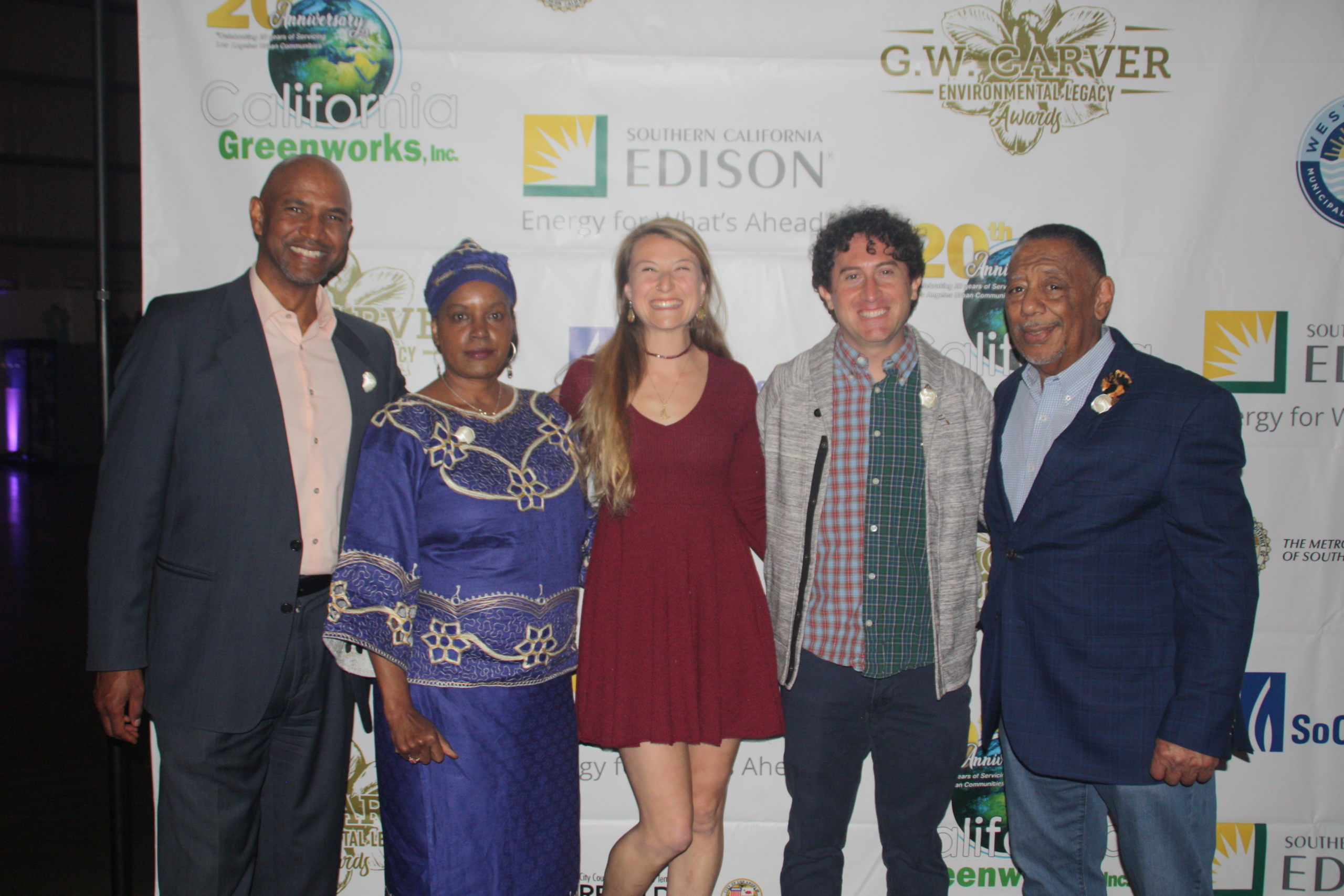
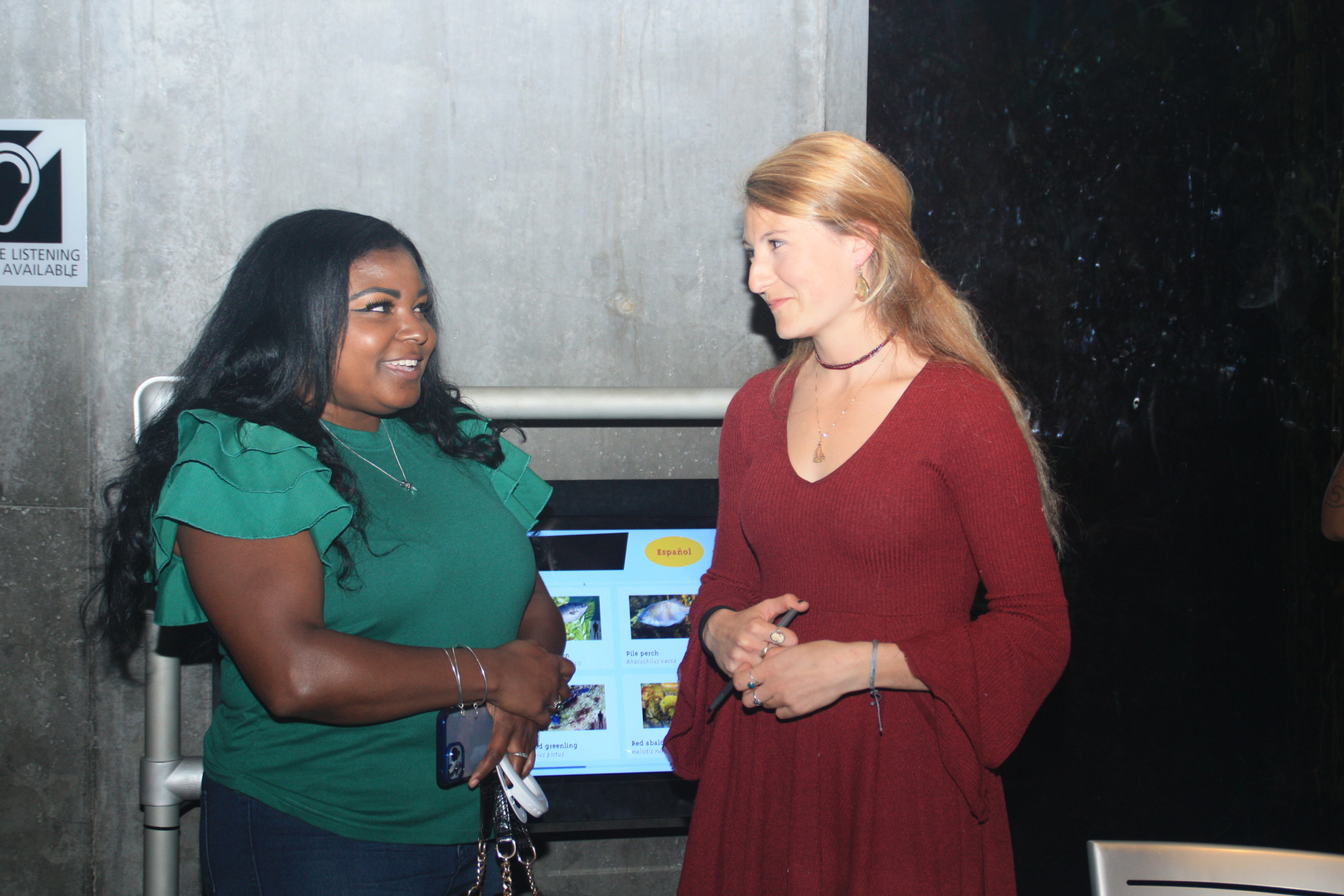
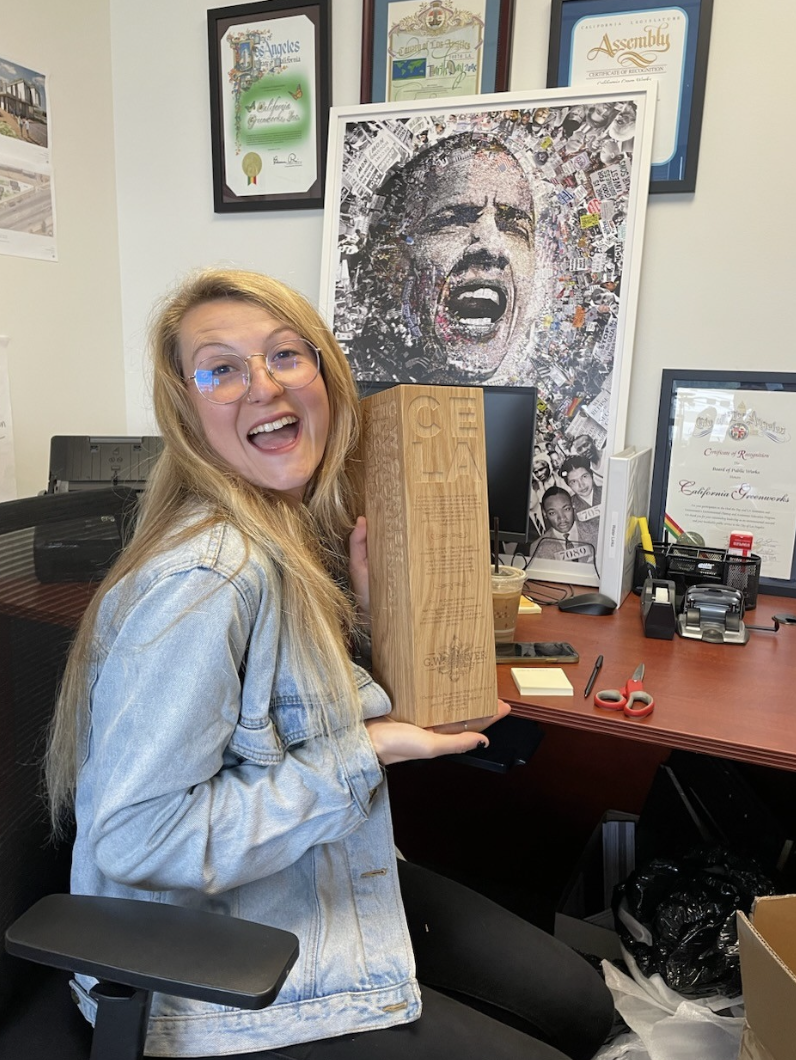
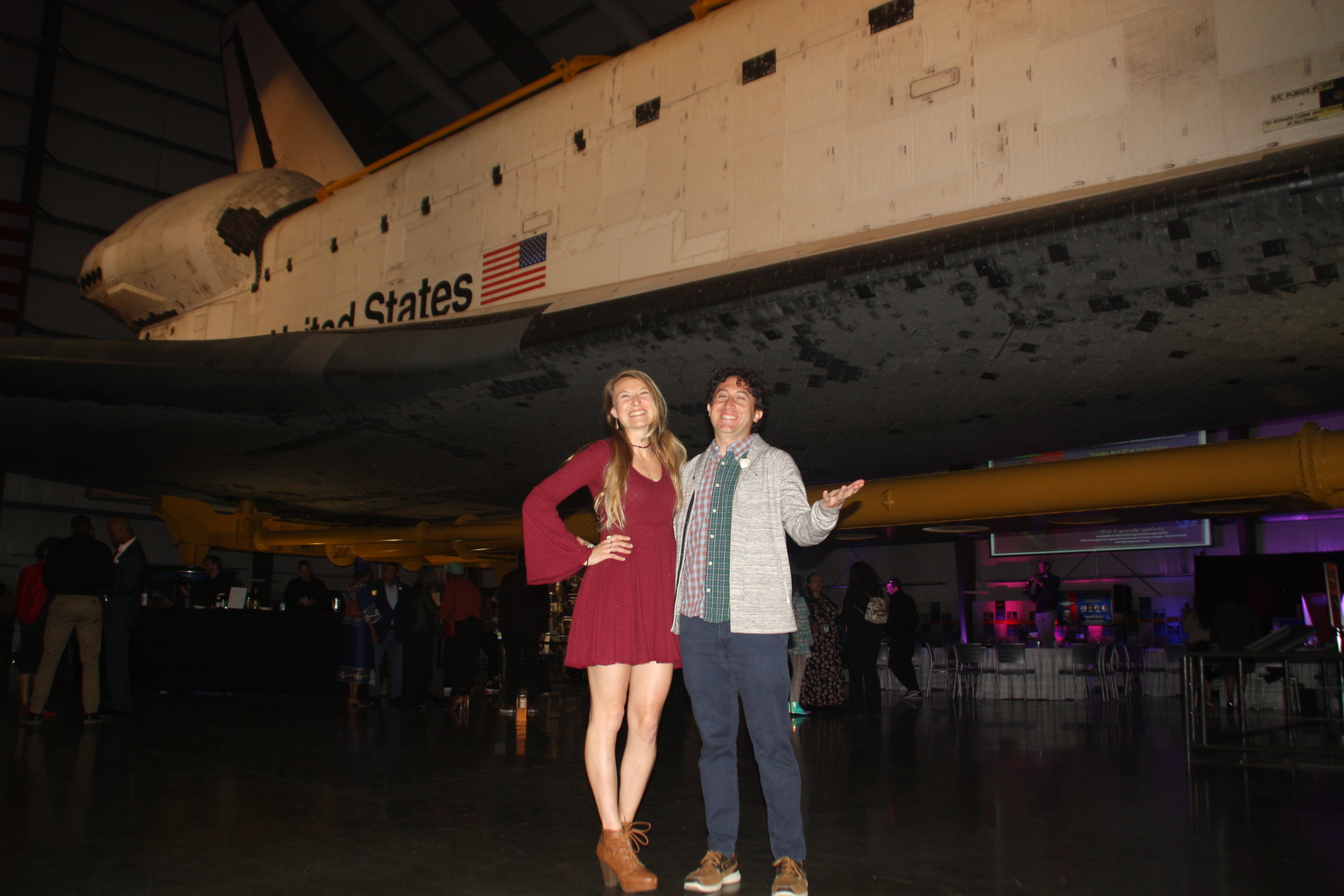
Meet Michael Berns, California Greenworks Program and Project Director
/in Uncategorized/by Admin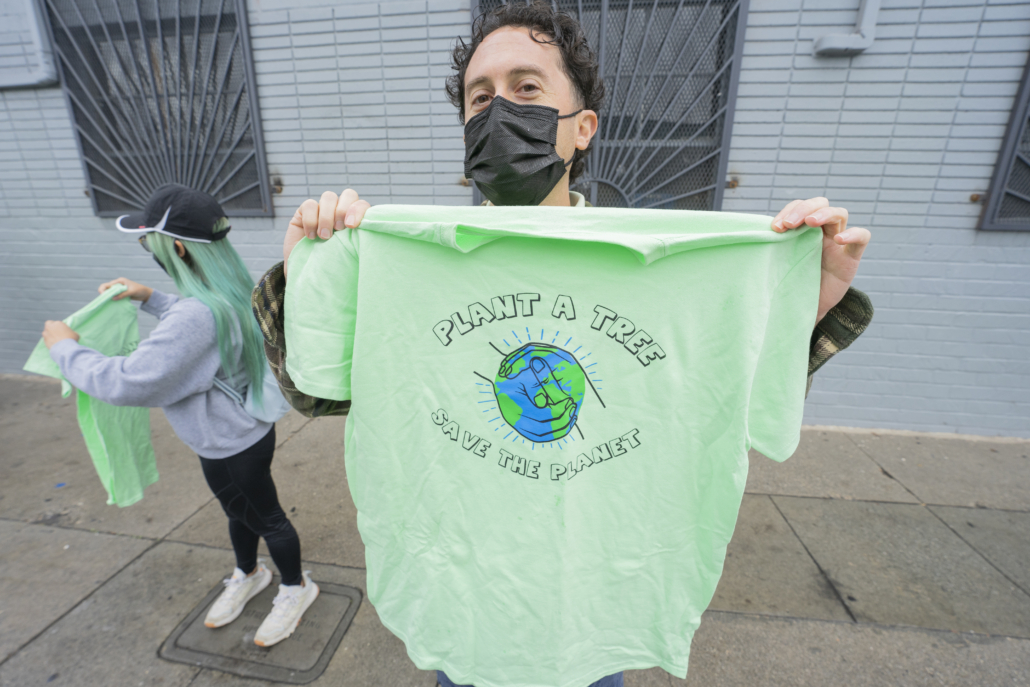
Michael has served 14 years in the nonprofit industry. He holds a PhD in Anthropology and is passionate about the environment and mental health. In his free time, he enjoys reading, traveling, surfing and making mosaics out of recycled material (michaelbernsart.com).
Here’s more from Michael about why he’s a part of California Greenworks:
I grew up in the Santa Monica mountains of Los Angeles, where I ran cross country from an early age. Oak savannas and the grassy hills were always my happy place. As I got older, I began to surf and began to notice how everything, and I mean everything, funnels into the bay of LA. After a storm, we were warned not to surf for at least 48 hours due to the increase in contaminants. This really hit home when I saw all the trash, litter, diapers and dead possums in the water.
CGW’s drive towards climate equity keeps me passionate. As a secular Jew from Los Angeles, the concept of social justice was constantly discussed in my family and community. I love that I am able to learn about the specific environmental aspects of social justice; and, I feel honored that CGW provides me with opportunities to correct the glaring injustices of the world.
I hope to create an impact at CGW by following the mantra of scalability. The world won’t be saved in one day, but that doesn’t mean we shouldn’t try. I hope to create more research and insights into the correlation between mental health and the environment. I hope to create opportunities of redressing historical environmental injustices. I hope to leave the world a better place than how I found it. I am an asset to the mission because of my training and passion towards research: I like reading and I like learning! I can also bridge seemingly disparate parts into a whole. I will continue to contribute to CGW through my passion, research skills, unique insights and perseverance.
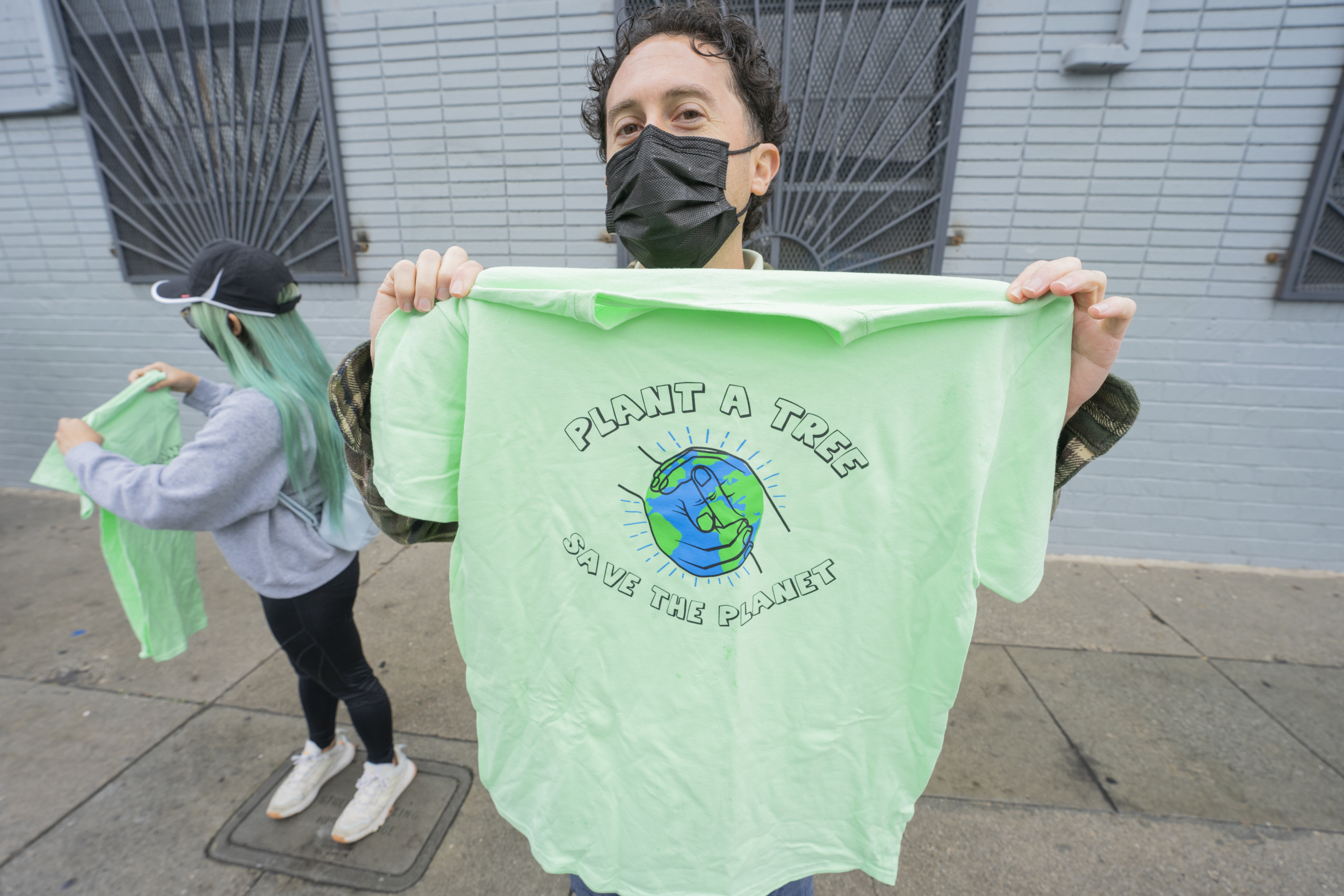
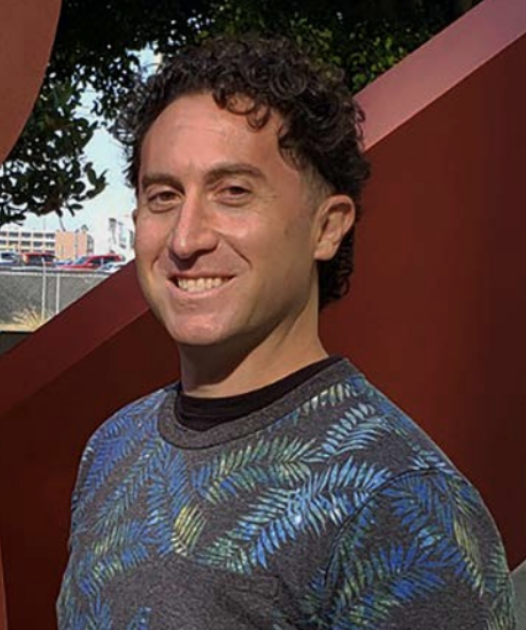
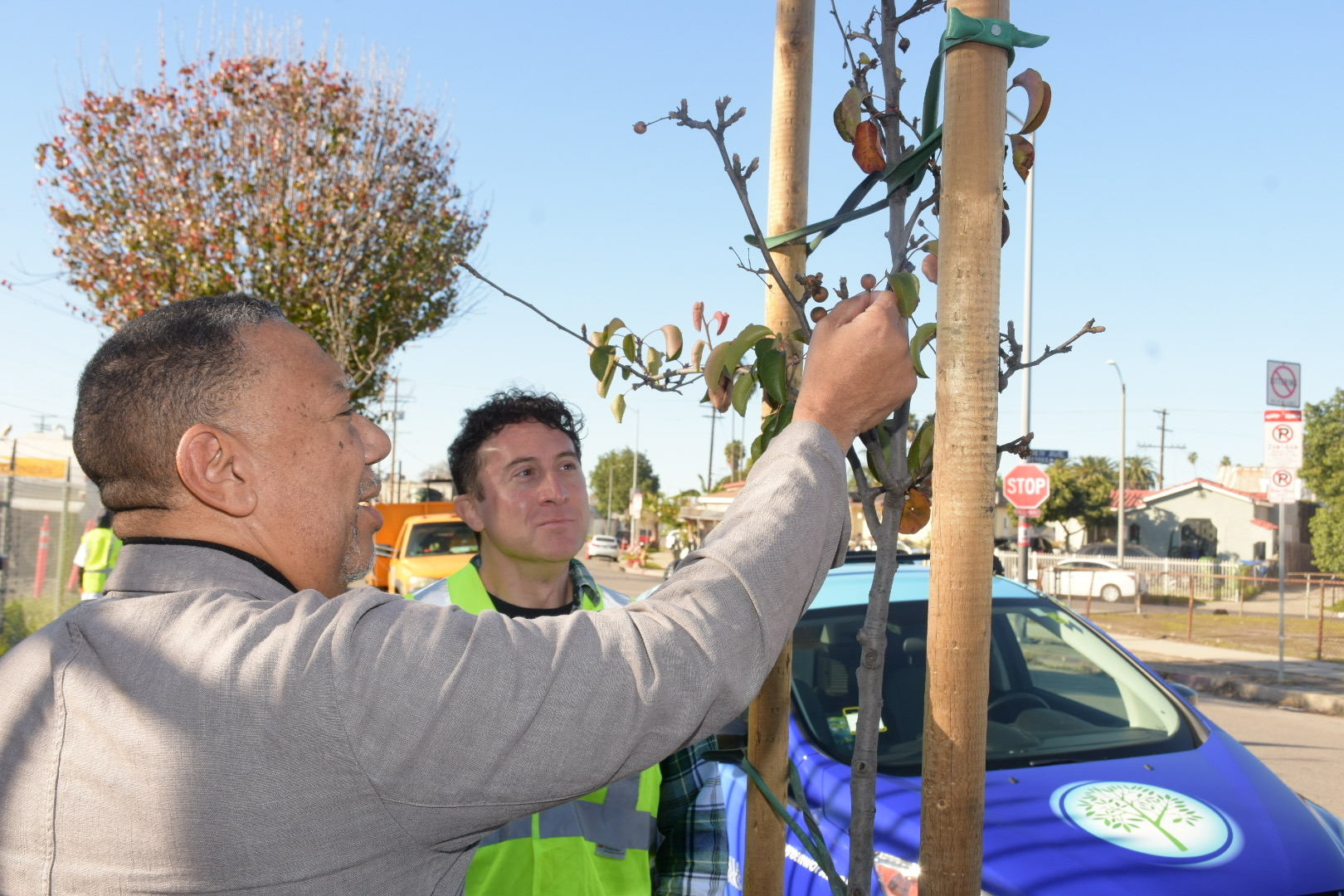
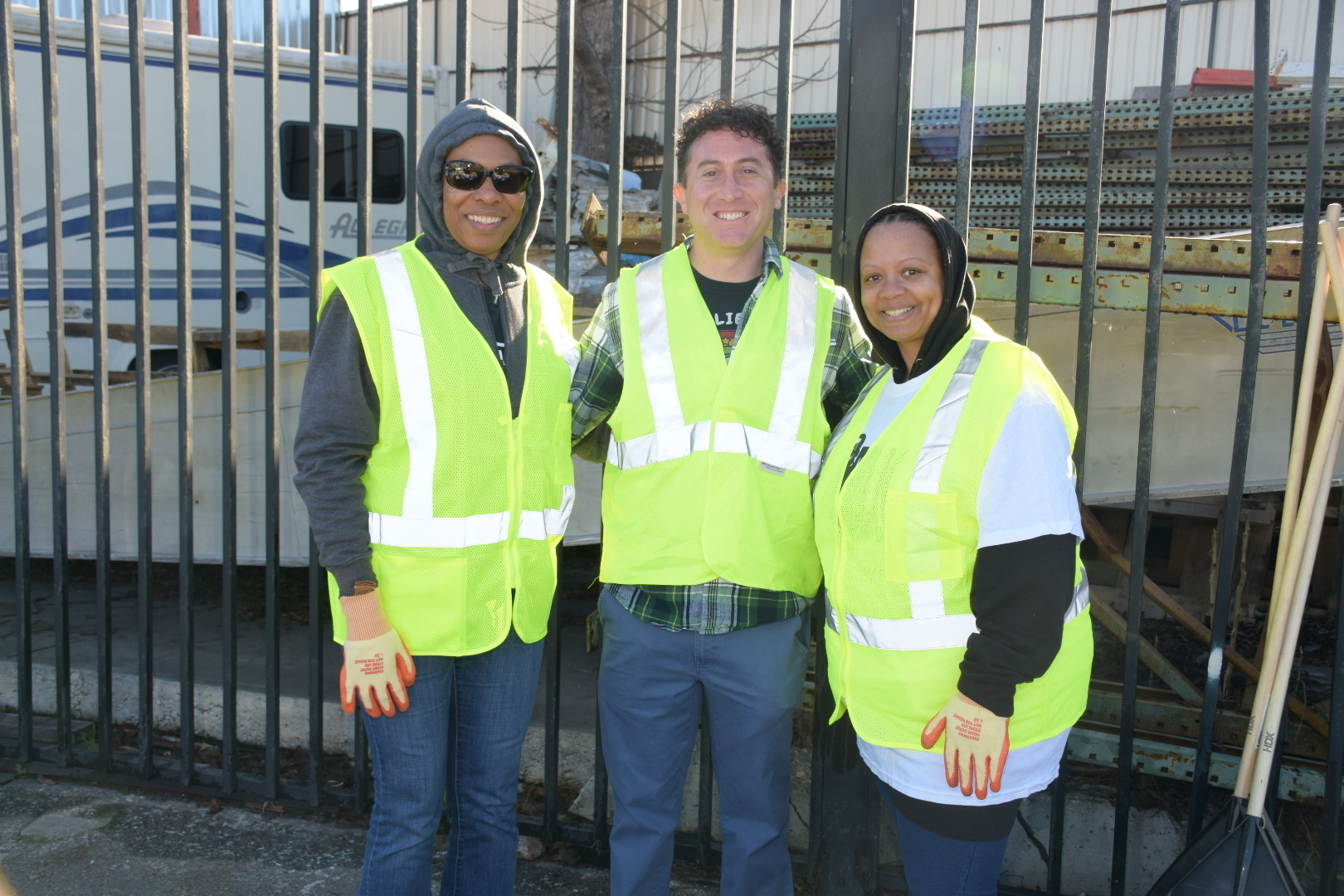
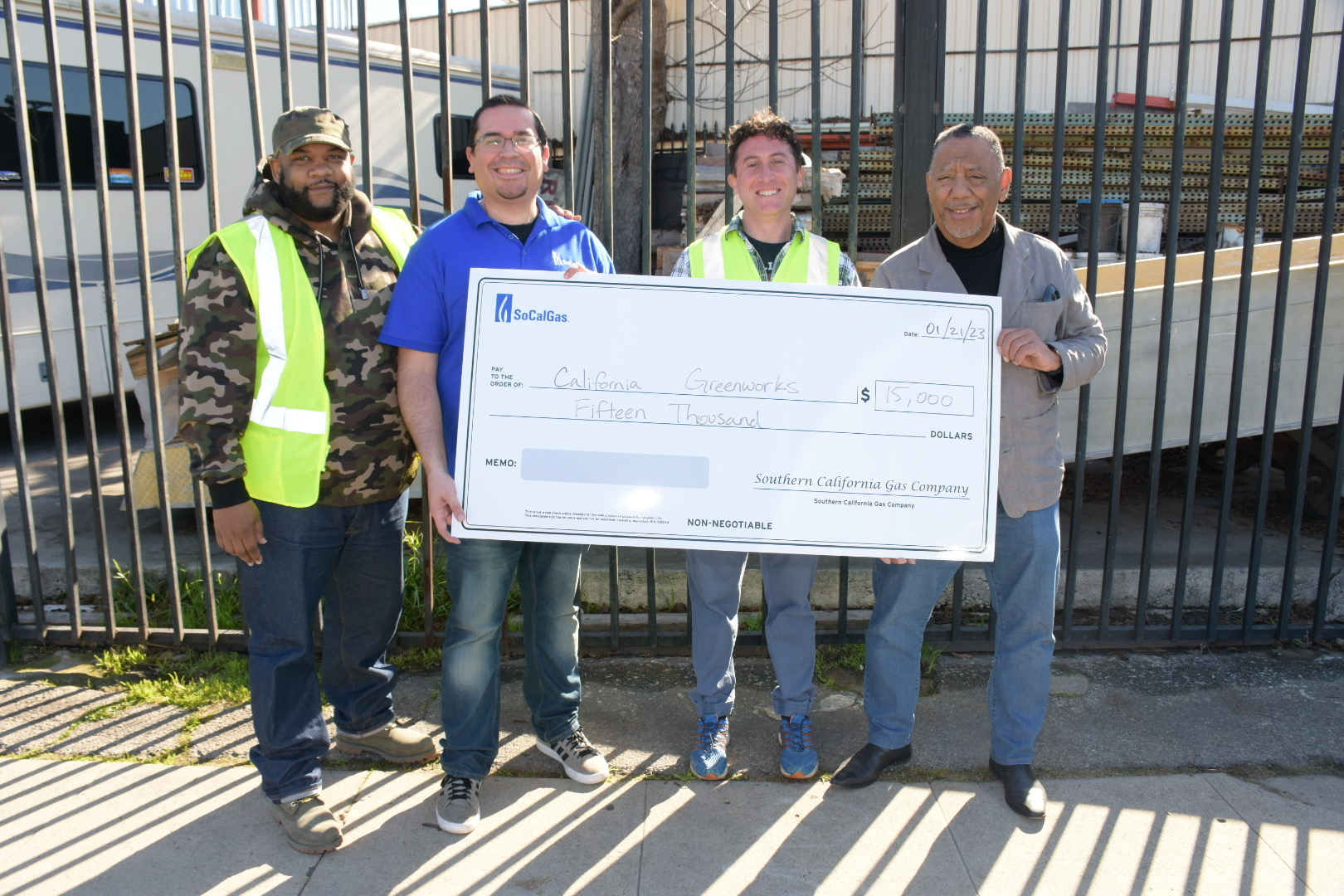

Meet Mike Meador, California Greenworks Founder & CEO
/in Uncategorized/by Admin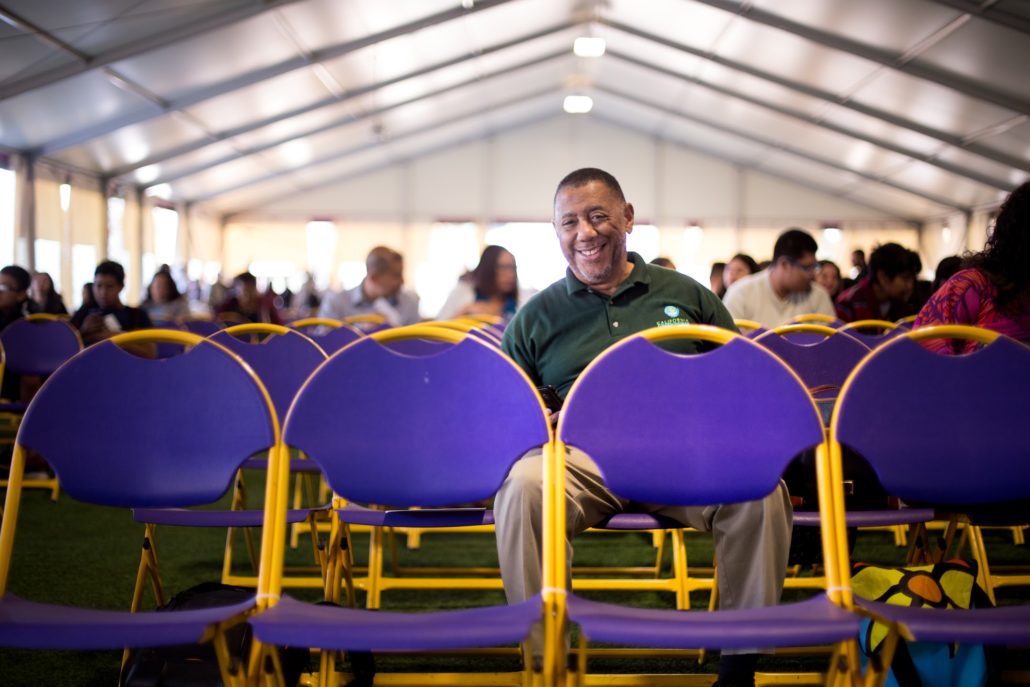
Mike has served as the leader of this environmental nonprofit for 20 years. He holds both a BA and MBA and is passionate about environmental justice, open space, and protection of our natural resources air, water and land.
Here’s more from Mike about why he started and remains committed to California Greenworks:
My family was involved in the agriculture industry in Texas, and much of my perspective comes from that experience. When I moved to Los Angeles, my eyes were quickly drawn to the abundance of urban blight: areas ridden with deteriorating or abandoned homes and other buildings, vacant lots, weeds and very little green space.
In Los Angeles, I met a girl from Kenya encouraged me to look at into the environmental space. That was back in 2000, and there weren’t very many African Americans involved in the environmental movement. At this time, we were just looking at what we could do to make things better in Los Angeles specifically. When we talk about environmental justice – the majority of low income communities are in the same areas as those industrial facilities – which harms health and wellbeing – and we started looking into projects as to how to improve this.
It was on a sailing trip with another founding member that California Greenworks was born. Noticing the excess trash in the water and all our conversations about environmental injustice in the background, it became clear something needed to be done. It should be a civil right for everyone to have clean water and clean air. And so, we started California Greenworks to create that change.
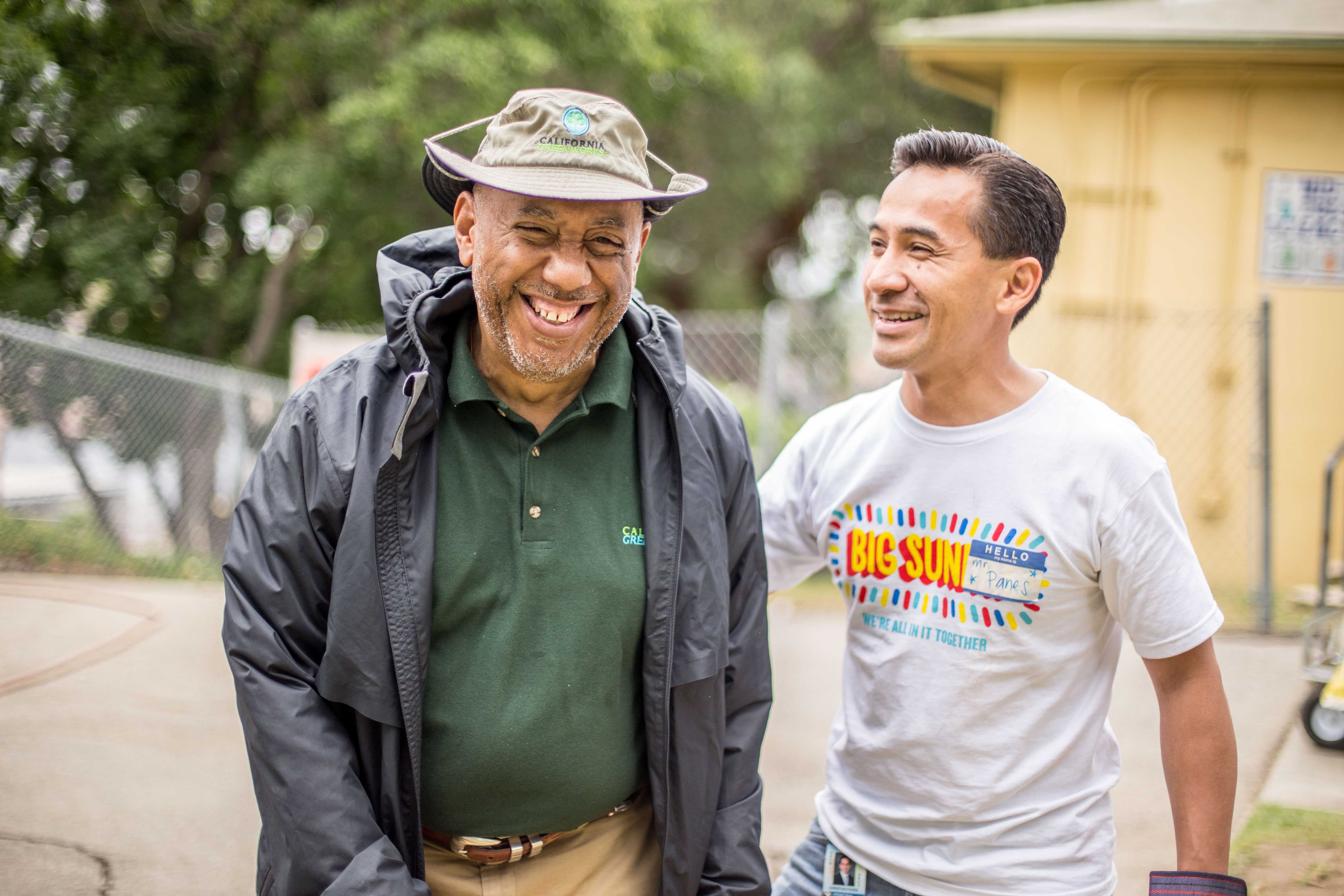
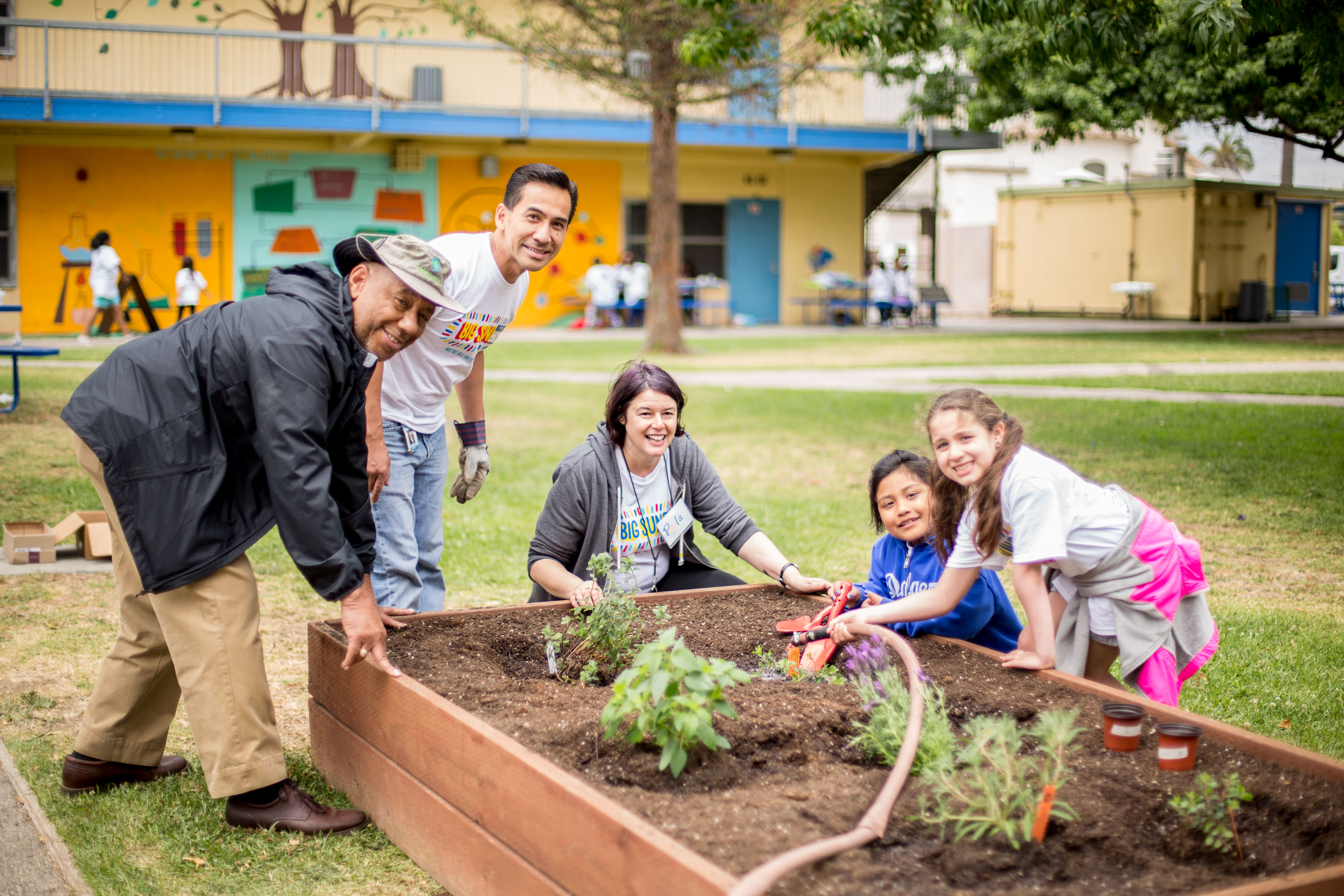
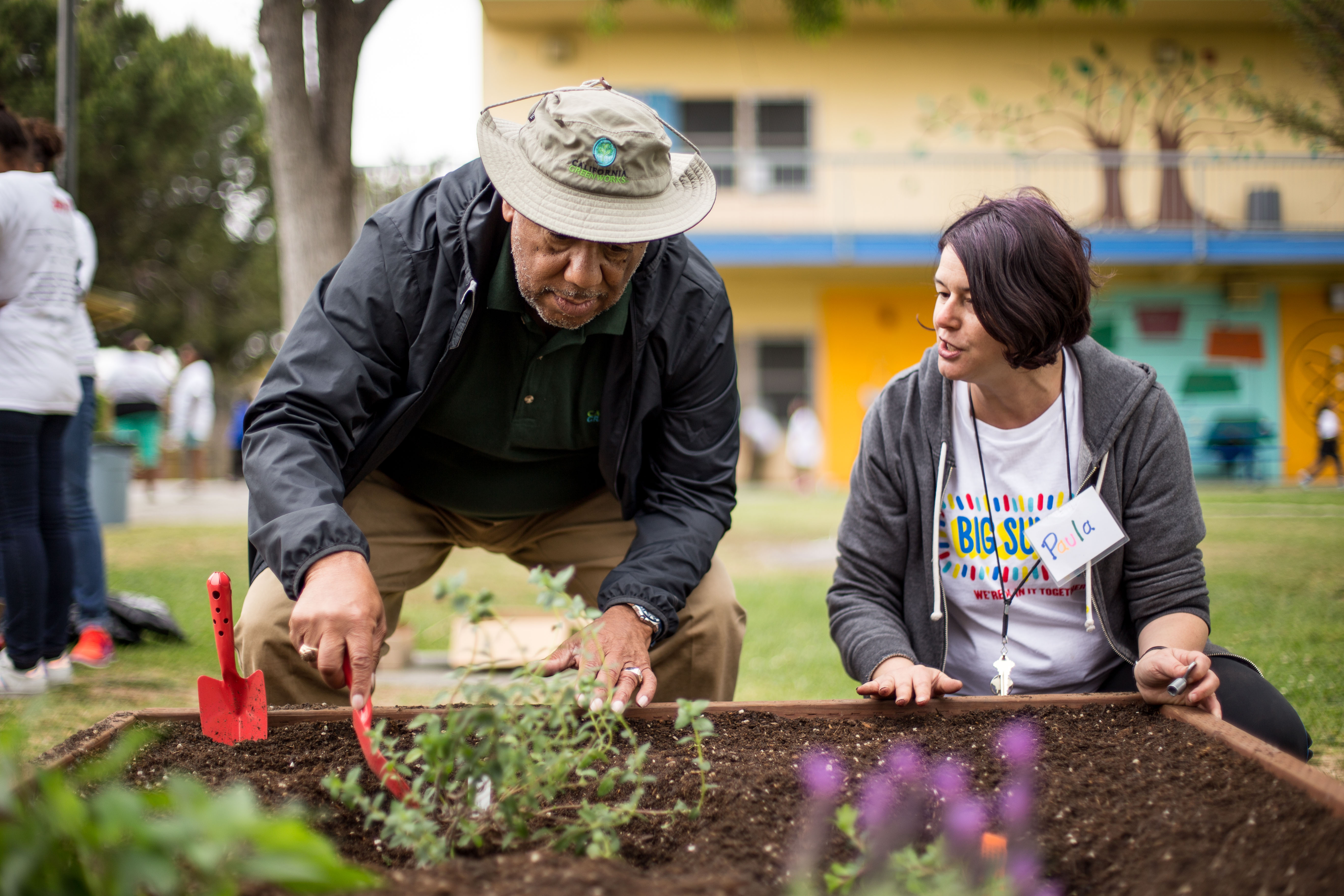

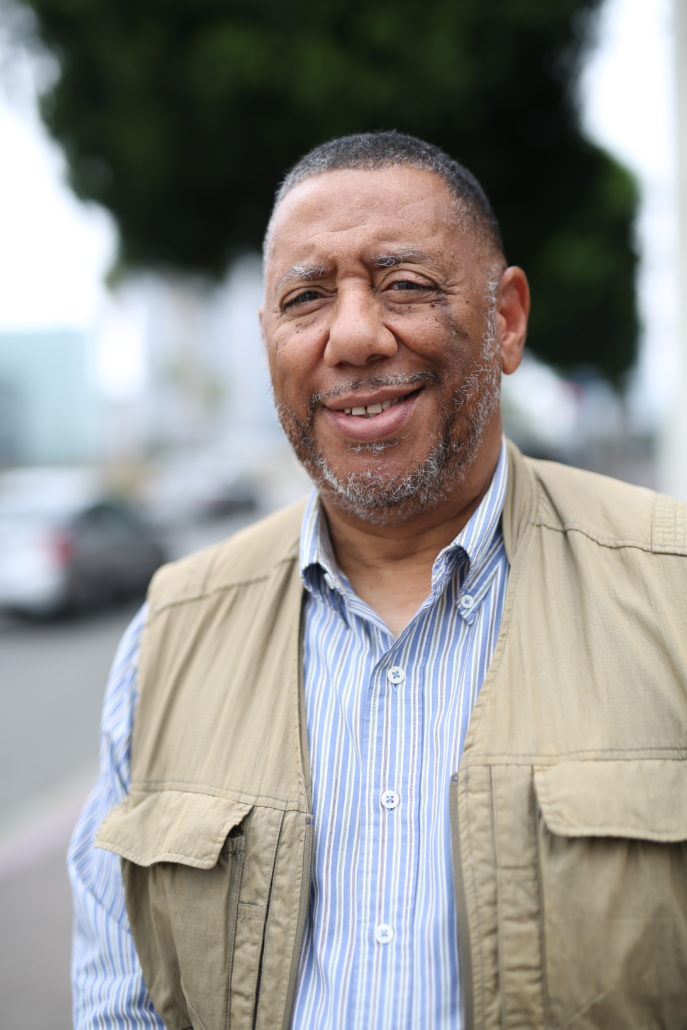
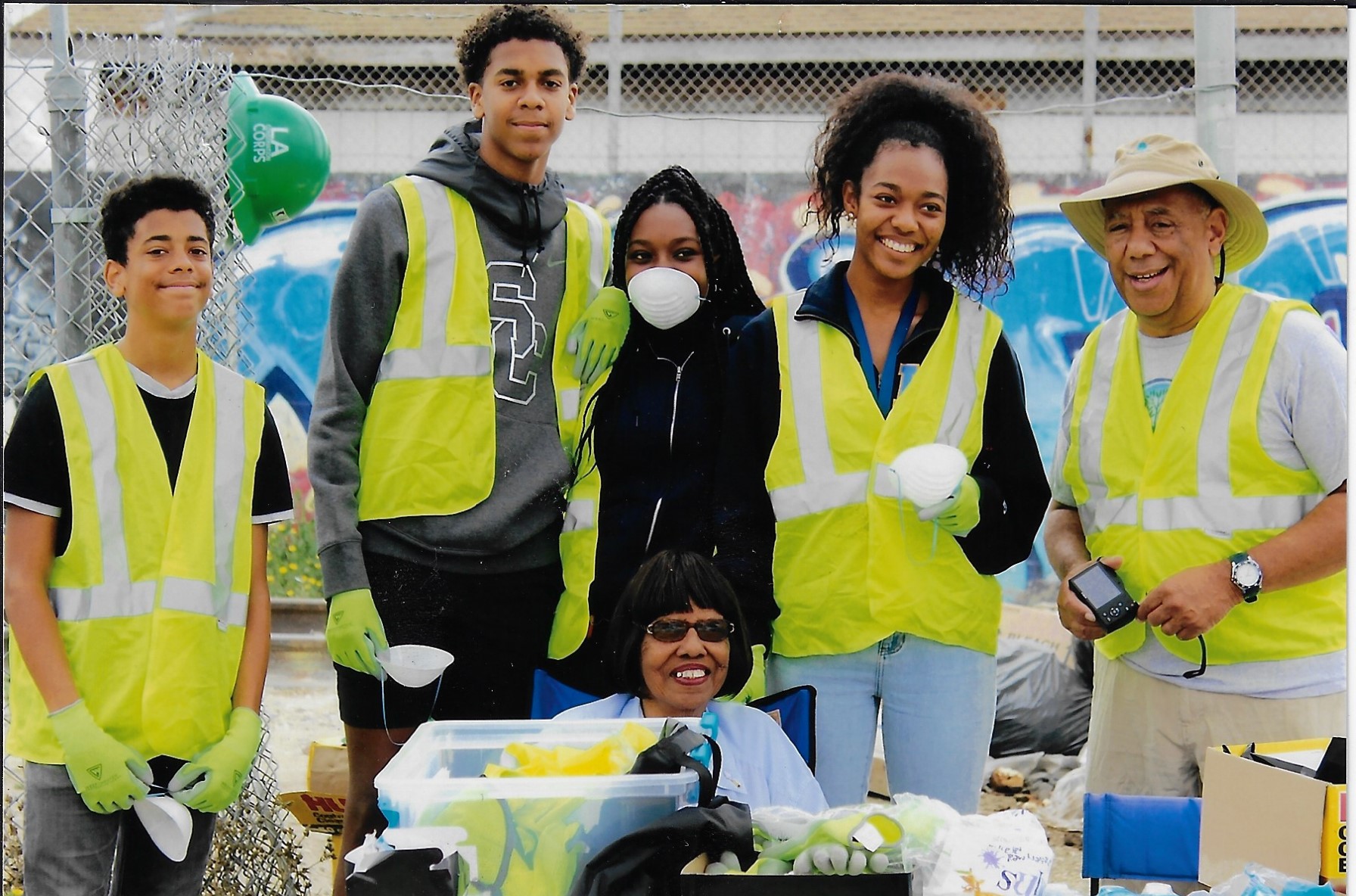
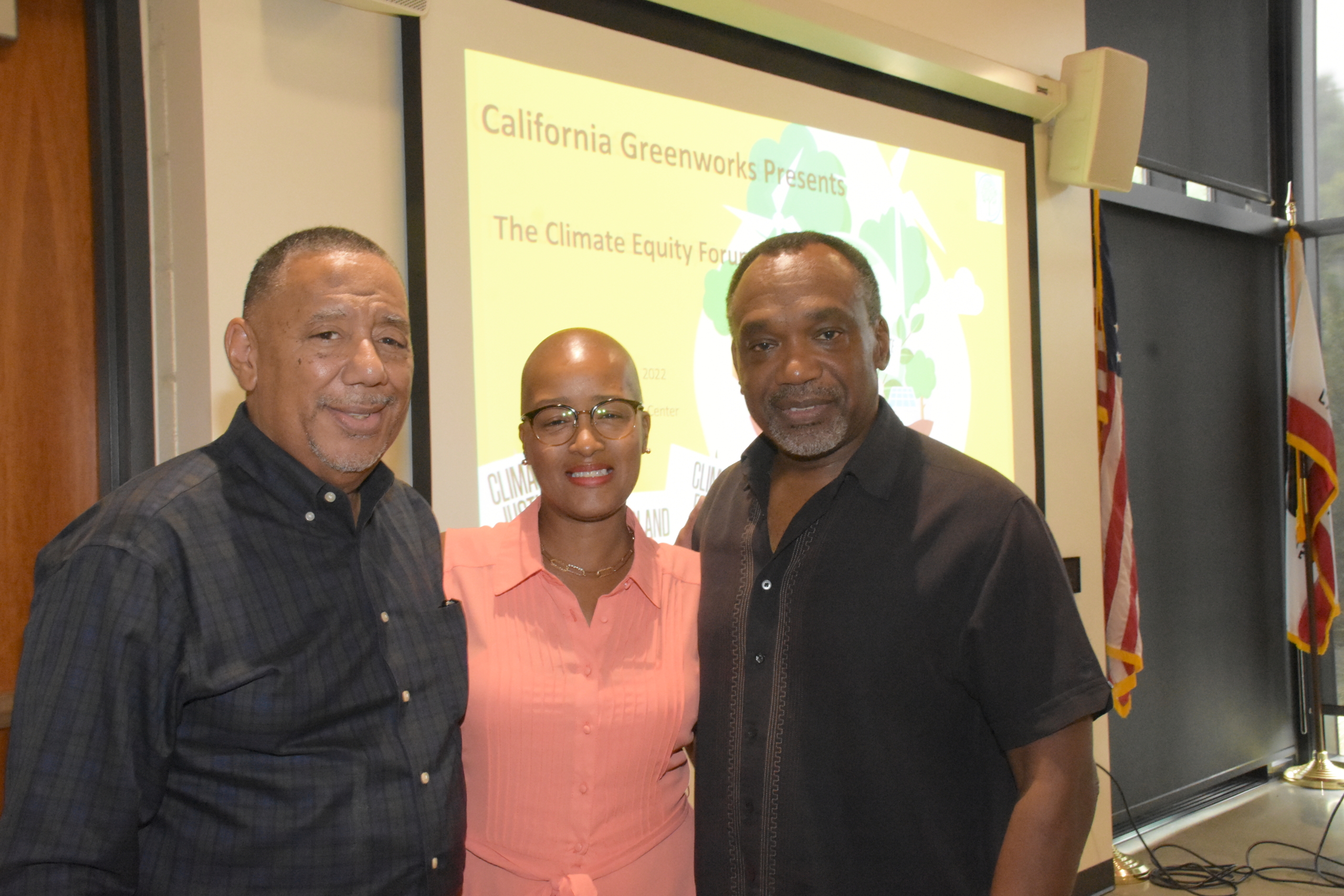
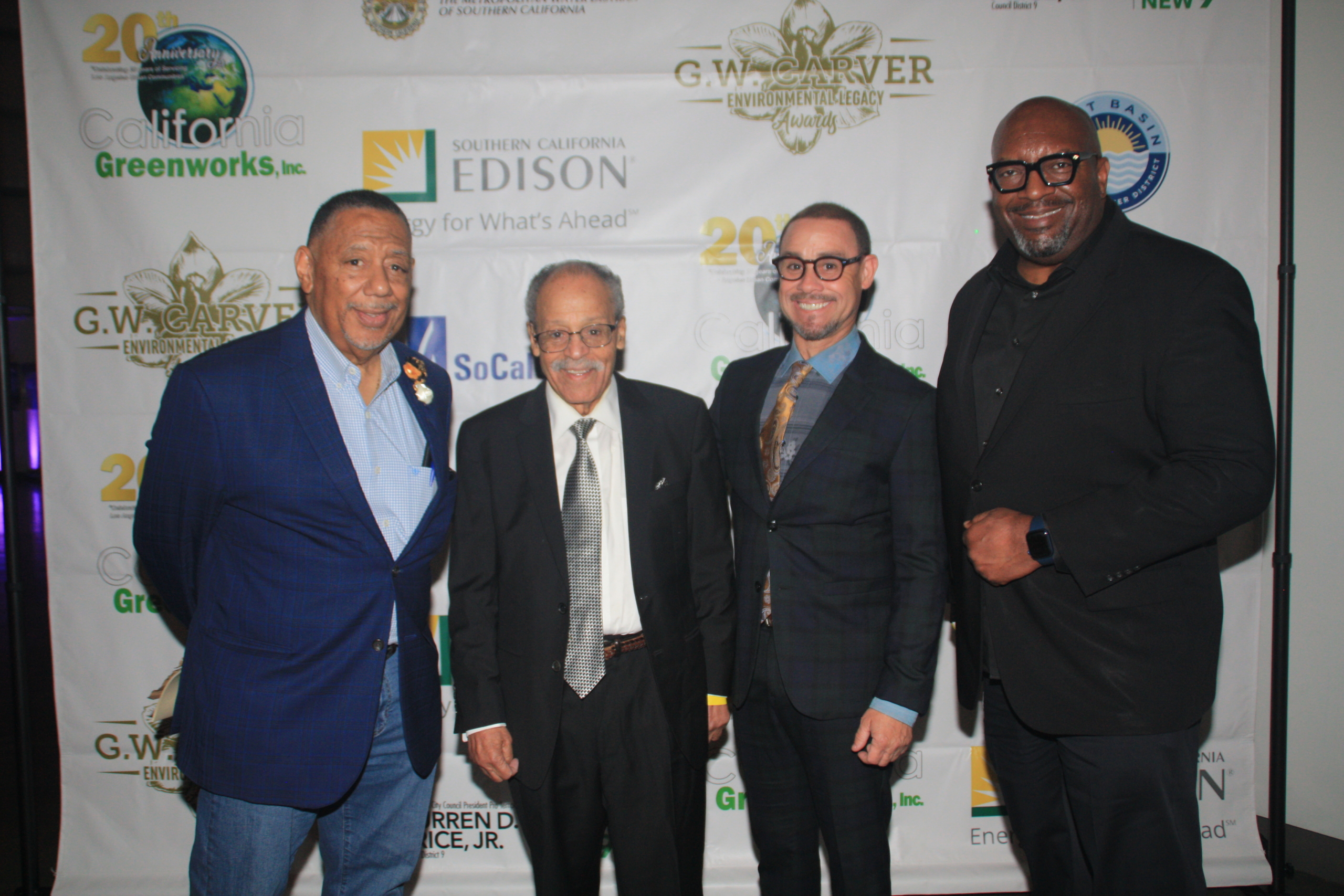
2023 CELA Award Winner: Nancy Sutley
/in CELA Awards/by Admin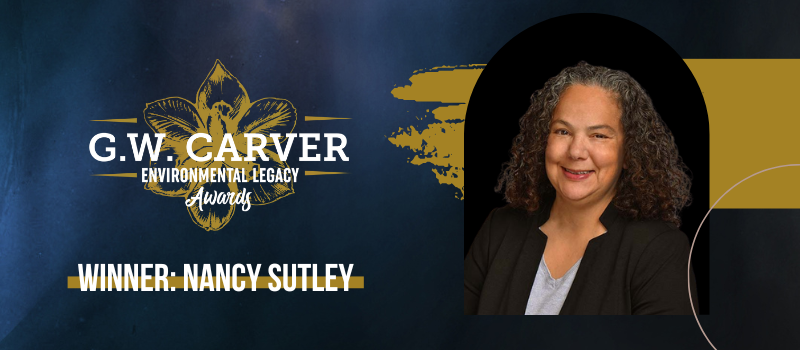
We will honor four awardees during the April 20 event at the California Science Center. Today, we’d like to introduce you to Nancy Sutley, Deputy Mayor for Energy and Sustainability for LA City.
We recognize Nancy Sutley for her activism for a better planet. Environmental change is as much about saving the planet as it is creating climate equity for underserved communities, as ongoing climate battles negatively and disproportionately affect the physical and mental health of low income individuals. Nancy’s voice is among those working to create change and equality in our nation.
Here’s more about Nancy Sutley:
Nancy served as deputy secretary for policy and intergovernmental relations for the California Environmental Protection Agency from 1999 to 2003, during which time she was the top energy advisor to Governor Gray Davis and supported a requirement for Los Angeles to produce 20 percent of its power from renewable sources. She was also a senior policy advisor to the San Francisco regional administrator of the Environmental Protection Agency, and later served as special assistant to EPA administrator Carol Browner, in Washington, D.C
She was appointed as chair of the Council on Environmental Quality in January 2009, during the Obama Administration, and promoted measures to conserve energy in the White House, such as installing low-flush toilets, adding sensors that automatically turn off lights in unused areas, introducing the use of recycling bins and installing solar panels and a solar hot water heater on the roof of the White House.
Source: Wikipedia
More About CELA
Dr. George Washington Carver, an African American scientist, naturalist, visionary and environmentalist saw it fitting to pursue a life of uplifting his community through the use of ecology and science. His vision lives with us today. The GW Carver Environmental Legacy Awards is intended to serve as recognition for outstanding devotion and service to mankind.
Our award recognizes leaders within their prospective fields of academia, green technology/STEM, environmental justice/advocacy, entertainment and community service categories. These outstanding citizens have distinguished themselves within their prospective professions to have made a positive impact on humanity and our environment. We seek to honor their service to humanity and achievements with our award during this annual gala celebration.
2023 CELA Award Winner: Ed Dwight
/in CELA Awards/by Admin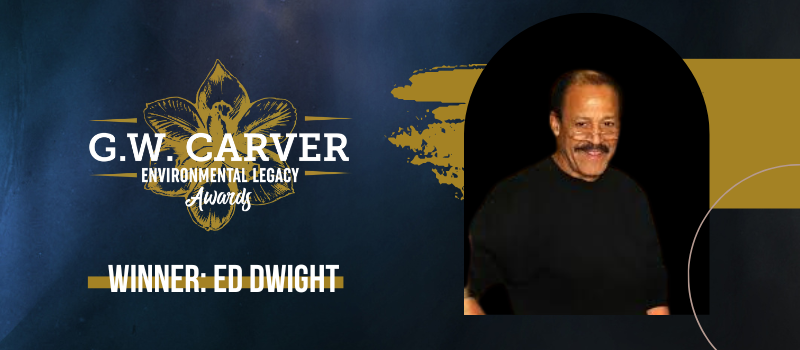
Our George W. Carver Environmental Legacy Awards (CELA) is coming up in April to celebrate Earth Day and the accomplishments of members in our community who have made extraordinary contributions within the environmental movement.
We will honor four awardees during the April 20 event at the California Science Center. Today, we’d like to introduce you to Ed Dwight, the First African American Astronaut Candidate and renowned sculptor.
We recognize Ed Dwight for his role as a leader pioneering a path for underserved communities. From his art sculptures that capture conceptual messages regarding contribution of African Americans to our society, to his earned title as the First African American Astronaut Candidate, Ed is a role model to many striving to find their way while struggling within the constraints of an underserved community. Environmental change is as much about saving the planet as it is creating climate equity for underserved communities, and inspiration from individuals like you offers a positive outlook.
Here’s more about Ed Dwight, from his website:
A man whose resume reads: former Air Force Test Pilot, America’s First African American Astronaut Candidate, IBM Computer Systems Engineer, Aviation Consultant, Restaurateur, Real Estate Developer and Construction Entrepreneur can best be described as a true renaissance man. Ed Dwight has succeeded in all these varied careers. However, for the last 40 years, Ed has focused his direction on the Fine Arts- Gallery Paintings & Sculptures, Large-scale Memorials and Public Art projects. Since his art career began in 1978, after attaining his MFA in Sculpture from the University of Denver, Dwight has become one of the most prolific and insightful sculptors in America.
Born and raised in Kansas City, Kansas, Ed left in 1953 to join the U.S. Air Force. After completing pilot training, he served as a military fighter pilot and obtained a degree in Aeronautical Engineering from Arizona State University. In 1961 Dwight was chosen by President John F. Kennedy to enter training as an Experimental Test Pilot in preparation to become the first African American Astronaut. Ed completed the Experimental Test Pilot course and entered Aerospace Research Pilot training, in preparation for Astronaut duties. He successfully completed the course and continued on to perform duties as a fully qualified Aerospace Research Pilot. Three years after the death of President Kennedy, Ed left the military and entered private life.
Ed Dwight has been an artist since his youth. He is a graduate engineer, a former USAF Test Pilot and America’s first African American Astronaut candidate. After successful careers as an Air Force Officer/Pilot, and real estate and construction entrepreneur, Ed has dedicated the last 33 years solely to his artistic endeavors.
In 1975, while in the Masters of Fine Arts (MFA) Program at the University of Denver, Ed was commissioned by the Colorado Centennial Commission to create a series of bronzes depicting the contribution of Blacks to the American Frontier West. The series of 50 bronzes was exhibited for several years throughout the United States, gaining widespread acceptance and critical acclaim. In 1979, while the series was on exhibit at the Jefferson National Expansion Memorial (National Park Service), Ed was encouraged to create a bronze series portraying the history and historical roots of Jazz. The series created, entitled “JAZZ: An American Art Form,” now consists of over 70 bronzes characterizing the creation and evolution of Jazz from its African and European roots to the fusion of contemporary music.
In 1978, Ed’s first large-scale commissioned work was the abolitionist Frederick Douglass. This life sized monument was commissioned by the National Park Service and is on display at the Douglass Museum in Anacostia, Maryland. Since this commission, Ed has completed over 128 Public Art & Large scale Memorial installations throughout the United States. He has also created over 18,000 gallery sculptures and is represented in several galleries throughout the country.
In 2009, Ed was honored with the commission to create an historical life size sculpture presentation of President Barack Obama’s first inauguration scene. The scene includes the President, The First Lady, the two Obama girls and Chief Justice John Roberts administering the oath. The exhibit is on tour throughout the U.S. in museums & other venues.
Currently, Ed operates a 30,000 sq. ft. studio/gallery and foundry in Denver. He employs several artisan craftsmen. He is the recipient of an Honorary Doctorate from his Alma Mater Arizona State University and hundreds of“Living Legends Awards” from around the Country for his achievements & contributions to racial progress through his many Memorials & Public Art. Museums, institutions and art appreciators throughout the world rigorously collect Ed’s sculptures.
More About CELA
Dr. George Washington Carver, an African American scientist, naturalist, visionary and environmentalist saw it fitting to pursue a life of uplifting his community through the use of ecology and science. His vision lives with us today. The GW Carver Environmental Legacy Awards is intended to serve as recognition for outstanding devotion and service to mankind.
Our award recognizes leaders within their prospective fields of academia, green technology/STEM, environmental justice/advocacy, entertainment and community service categories. These outstanding citizens have distinguished themselves within their prospective professions to have made a positive impact on humanity and our environment. We seek to honor their service to humanity and achievements with our award during this annual gala celebration.
2023 CELA Award Winner: Dr. Barbara Shannon
/in CELA Awards/by Admin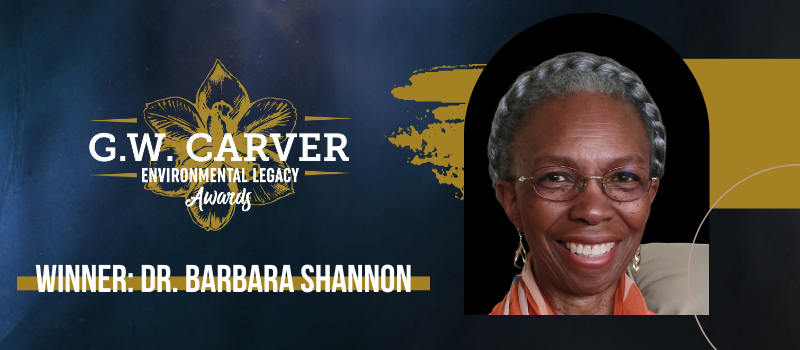
Our George W. Carver Environmental Legacy Awards (CELA) is coming up in April to celebrate Earth Day and the accomplishments of members in our community who have made extraordinary contributions within the environmental movement.
We will honor four awardees during the April 20 event at the California Science Center. Today, we’d like to introduce you to Dr. Barbara Shannon, Director of STEM Education Emeritus
We recognize Dr. Shannon for her outstanding work in the environmental field, most specifically her work as the Director of STEM Education at Synergy Academies, and her essential role in empowering more Latino and African American students to pursue a career in the STEM field. Her work lifts those in the same underserved communities we support out of the circle of poverty, allowing them to accelerate their lives to successful careers. STEM careers will play a vital role in future environmental protections, and we are grateful for her impact in this area.
Here’s more from our interview with Dr. Shannon:
Dr. Barbara grew up on a farm in Fontana, where the city limited access to water to certain times of day depending on your location north or south of Baseline Street. Her dad purchased a water tank which he filled every night, and shut off the fill valve in the morning. The family farm was home to chickens, rabbits, goats, cows, and pigs – and, as she put it: “We learned not to waste water, or someone, including the animals, would have to go without.”
Conservation is always seemingly an underlying thread of her life. In the 1970s, she started her teaching career – well aware of the active research California put into alternative energy sources such as nuclear, wind, geothermal and solar. This in combination with her childhood and influences from devastating storylines of movies like Soylent Green and Planet of the Apes encouraged Dr. Shannon to always think earth conscious – and to pass that attention on to her students.
In the 1980s, she wrote a course entitled, “The Physical Ecology of Southern California,” which combined chemistry, biology, geology and ecology and took students on field trips to places such as San Onofre Nuclear plant, the Solar Field – Solar One, and the San Gorgonio Wind Farm.
She spent 8 years as the Director of STEM Education for Synergy Academies, which consists of three public charter schools located in South Los Angeles. The program includes a very active Environmental Science program that has evolved over the years, often incorporating research and understanding of the South LA Wetlands.
“I have taught conservation at every place I have worked and tried to instill in the younger generation the necessity of taking care of the earth – air, water, plants, and animals,” Dr. Shannon said. “When I lived in Eureka, I watched as cancer rates climbed in areas affected by the paper mill pollution. When they built Costco, the soil was so contaminated they had to burn off the soil to clean it up. In South Los Angeles, I noticed an increase in cancer in families whose dwellings were built on land where car painting facilities once were. And now, with the drought, clean water is becoming scarce. Conservation is more important than ever.”
Even when programs had to pause during COVID, Dr. Shannon says the school found resources that “helped the students truly understand our impact on the environment and what we could do to reduce our carbon footprint and still enjoy life.” They hope to end this school year with a field trip to the San Diego Wild Animal Park, where students will see how the park uses conservation methods to help animal and plant species.
“One fault of humans is that we invent but don’t look at what our inventions can cause. In California, all new appliances are to be electric by 2026,” she said. “But energy is needed to make that electricity. Where will we get it? So, I think we need to look ahead when we come up with an idea to see who will be affected and how they will be affected.”
Dr. Barbara Shannon said she continues to learn every day from everyone. Some unique details about herself: she learned to shoot a bow and arrow at the age of 7, and her favorite hobby is reading science fiction/fantasy.
Dr. Barbara Shannon is the co-founder and founding principal of two schools: the middle school, Synergy Kinetic Academy (2008), and the high school, Synergy Quantum Academy (2011). Barbara has been an educator for 50 years. She holds a B.A. in Biology from CSU San Bernardino, an M.S. in Biology from Cal Poly Pomona, and a Doctorate in Learning and Instruction with an emphasis on Science Education from the USC Rossier School of Education. Before opening Synergy Kinetic Academy, she spent her summers doing research at the Lawrence Berkeley Laboratory and the City of Hope.
We are truly humbled by the work that Dr. Shannon has done to influence young minds about the importance of conservation, and look forward to presenting her with this much deserved award on April 20.
More About CELA
Dr. George Washington Carver, an African American scientist, naturalist, visionary and environmentalist saw it fitting to pursue a life of uplifting his community through the use of ecology and science. His vision lives with us today. The GW Carver Environmental Legacy Awards is intended to serve as recognition for outstanding devotion and service to mankind.
Our award recognizes leaders within their prospective fields of academia, green technology/STEM, environmental justice/advocacy, entertainment and community service categories. These outstanding citizens have distinguished themselves within their prospective professions to have made a positive impact on humanity and our environment. We seek to honor their service to humanity and achievements with our award during this annual gala celebration.
CELA Award Winner: David McNeill
/in CELA Awards/by Admin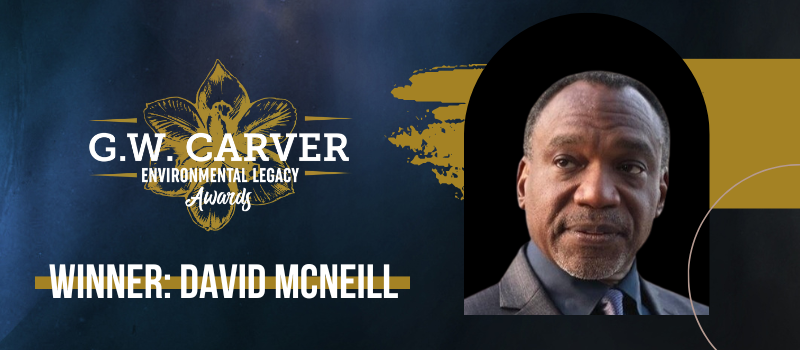
Our George W. Carver Environmental Legacy Awards (CELA) is coming up in April to celebrate Earth Day and the accomplishments of members in our community who have made extraordinary accomplishments within the environmental movement.
We will honor four awardees during the April 20 event at the California Science Center. Today, we’d like to introduce you to David McNeill, Executive Officer of the Baldwin Hills and Urban Watersheds Conservancy.
We recognize David for playing an instrumental role in many open space projects that have connected our communities with green space so that more people can enjoy the great outdoors. The Park the Playa Trail is a wonderful example of the important work that he’s done in his role, and his dedication to creating green space access for our community.
Here’s more from our interview with David:
David started with the Baldwin Hills and Urban Watersheds Conservancy 21 years ago, and said he was drawn to the mission because of its focus on creating access to green space for those currently without. He cited something called, “outdoor deficit disorder,” referring to youth that had never been to the forest or the beach – their only understanding of the outside world? Concrete.
“We were the poster child for equity and putting parks where people are – it wasn’t so much a matter of saving a species or dealing with the environment, as it was providing access to communities of color to get into the environment,” David said. “I am a people person – I wouldn’t be in this if it wasn’t impacting people’s lives. The most impactful work that I’ve done revolves around youth and families enjoying open space, and more importantly building a pipeline for people to do my job, except for to do it better than I did.”
David also advocates for individuals to be better heard, and especially for minority communities to realize they have a voice that can create needed change around them. Importantly, he says, every individual needs to find the puzzle piece that will create personal interest and passion within an environmental mission.
“You want a spark to happen,” he said. “You can have what you want as long as you know what you want and you ask for it.”
For example, if an individual really likes bird watching – ask: how can I make that happen in my community? Or, to think: I think I should be able to walk to a park, how do I make that happen?
“I say you need to go out and have a voice and take control of it and get some ownership – finding that ownership is the key,” he said.
When it comes to enjoying nature, David said he enjoys road trips and exploring the various landscapes of California, having attended school in Oregon and driven the route many times.
“All the natural beauty that California has to offer humbles me,” David said.
We are truly humbled by the work that David has done to change the connection that so many underserved in our region have to nature, and look forward to presenting him with this much deserved award on April 20.
More About CELA
Dr. George Washington Carver, an African American scientist, naturalist, visionary and environmentalist saw it fitting to pursue a life of uplifting his community through the use of ecology and science. His vision lives with us today. The GW Carver Environmental Legacy Awards is intended to serve as recognition for outstanding devotion and service to mankind.
Our award recognizes leaders within their prospective fields of academia, green technology/STEM, environmental justice/advocacy, entertainment and community service categories. These outstanding citizens have distinguished themselves within their prospective professions to have made a positive impact on humanity and our environment. We seek to honor their service to humanity and achievements with our award during this annual gala celebration.
A Reflection on 20 Years of Environmental Action as We Celebrate Our Anniversary
/in Uncategorized/by Lyssa Schmidt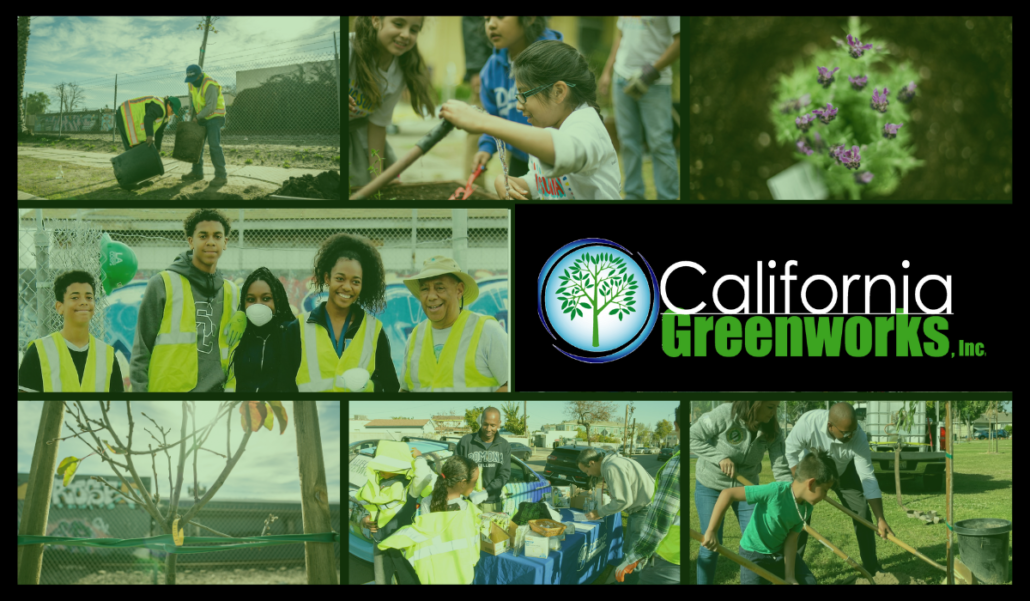
It is no simple mission we set out on 20 years ago, when California Greenworks moved from idea to reality. Yet, it is the simple things over time that have left an impression.
As a founder, I, alongside my good friend Nancy, was baffled at the urban blight that plagued the inner city. Yet, motivated by an inner passion for green spaces and equal rights for disadvantaged communities – we testified against the litter in our oceans and streets, the environmental inequities that faced the world, a community filled with systems of injustice … we started California Greenworks.
We took on our mission as protecting the planet from these systems of injustice: not solely for the sake of the planet, but, importantly, for the sake of our fellow citizens.
This first step was two decades ago.
One of the most important lessons we have learned is scalability. We do not – and in fact, cannot – solve every issue wholly and miraculously. One tree can make a difference. One community clean up can create positive outcomes. One student’s life impacted can make a difference.
For example, I remember a student participating in our youth education program, and he told me this program gave him his first opportunity to see the ocean. It really struck me how simple things like a visit to the beach may not be simple to others. This scenario is one among the long list of burdens of climate injustice.
While every one act makes a difference, the fact of scalability is one we must address our current climate with now. The world is on a path towards calamity. Since an ecosystem is, by definition, about connections and systems, an often overlooked connection within environmentalism is the social justice aspect.
Today, in America, there are systems in place that pave the way towards calamity. Institutions designed to protect us, instead commit murder. When the simple utterance of Black Lives Matter creates anger and fear, this is a symptom of the calamitous path.
Throughout the history of the United States, people of color have been targeted and attacked for being people of color. This system has plagued these populations in marginalized communities, disproportionately impacted by issues of climate change – among other challenges. Since these atrocities are systemic, the solutions must also be systemic.
We cannot solve everything at once, but we can create means of redemption. If you are concerned with the foreboding environment, we remind you that the environment can only be saved when our systems of injustice are footnotes in history. As a scalable remedy, we invite everyone to say the names of the most recent victims of this system: Alonzo Bagley, Tyre Nichols, Keenan Anderson, Eric Holmes, Ki’Azia Miller, Eric Allen … the list is tremendous. Through remembrance we can be motivated towards action. Through one single action, we can be motivated to take the next step and create more action.
Now we must march forward together, tackling issues of climate inequity, climate change and planet earth sustainability. We have to take a more proactive position, and get in control of our environment and that means finding ways to reduce fossil fuels and be more responsive to the needs of our climate.
There are great places in our city that we can enjoy. For example, Kenneth Hahn Park is among my favorite places to visit – it’s close to me, and it’s improved quite considerably over the years. This is proof that, working together, we can create positive change and restore our environment.
I look forward to meeting more community members and working alongside you to create this change, for the next 20 years and beyond.
Celebrating 20 Years in Service
Our team at California Greenworks is excited to celebrate its 20th anniversary in 2023. We’d love you to join us this year in our mission to create a more equitable and green community. Check out our upcoming CELA Awards ceremony, where you can meet environment leaders honored for their impact, and be inspired to take environmental action.
LEARN MORE AND BUY TICKETS HERE

Hiring Alert: AmeriCorps Positions Now Available!
/in News/by Admin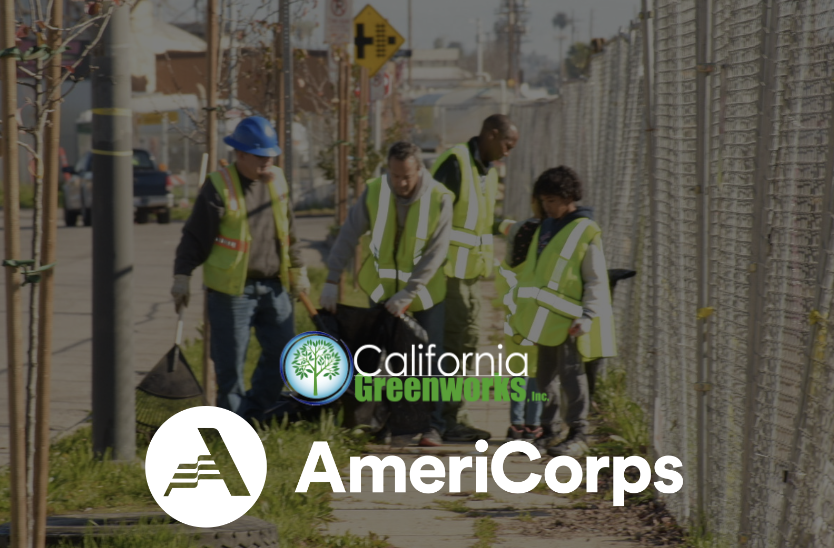
California Greenworks was awarded the AmeriCorp Vista Grant. Founded in 1965, Volunteers in Service to America (VISTA) is an anti-poverty program designed to provide needed resources to nonprofit organizations and public agencies to increase their capacity to lift communities out of poverty. AmeriCorps VISTA provides opportunities for Americans 18 years or older from a diverse range of backgrounds to dedicate a year of full-time service with an organization (“sponsor”) to create or expand programs designed to empower individuals and communities in overcoming poverty.
Below are the AmeriCorps Vista positions we have available!
Marketing and Communications Coordinator
The Marketing and Communications Coordinator is responsible for developing, and implementing a marketing strategy that exemplifies California Greenworks’ mission, values and initiatives. The communications coordinator will help provide a supplemental workforce using corporate, community and individual volunteers. They will help craft and create marketing narratives, help create, manage and coordinate outreach events, and assist in projects via communication strategies.
Development Resource Coordinator
California Greenworks is an environmental, nonprofit organization that strives to better the environment for Californians. The Development Resource Manager is responsible for developing, and implementing a fundraising program that exemplifies California Greenworks’ mission, values and initiatives. This program will focus on obtaining donations and grants for different projects and will look to obtain resources that will help expand the scope and reach of CGW. This position will ultimately increase the number of donations and grants provided to California Greenworks’ mission and vision.
Program Coordinator
California Greenworks is an environmental, nonprofit organization that strives to better the environment for Californians. The Project Assistant provides leadership and technical support for all CGW programs by collaboratively developing and advancing sustainable forestry and carbon mitigation projects throughout and providing technical and scientific support for forest management planning and conservation initiatives, environmental justice programs and green education and workforce development curriculum. He/She will engage with community and agency partners to design and implement projects that meet social, economic and ecological objectives. They also support strategies to secure public and private funding for conservation goals. The Program Assistant will engage both in research and development.

